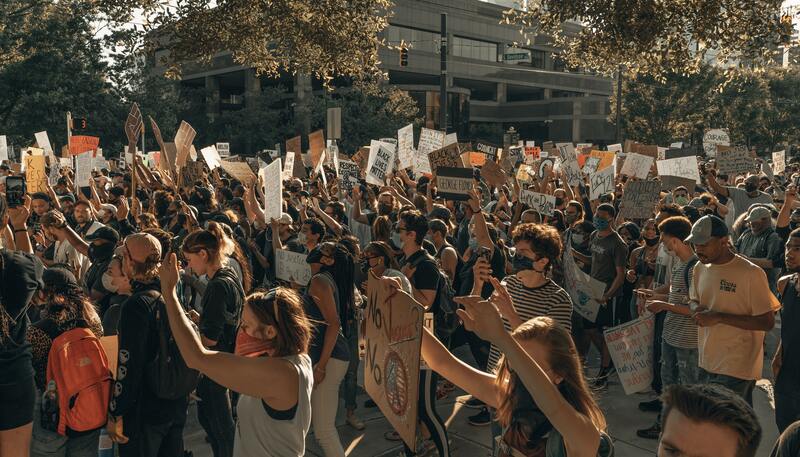Fortunately, it won’t be often in our lives that we are faced with two public health crises concurrently, both pandemics: COVID-19 and systemic racism. In a democracy, it is our right to peacefully protest, but like never before, we risk our health–even our lives–by doing so because of the virus. People with metabolic syndrome need to be particularly careful, because they have conditions that increase their vulnerability to COVID-19. For example, in one study of 5700 hospitalized patients with COVID-19, the most common preexisting conditions were hypertension, obesity, and diabetes. However, with so much at stake, there are those who argue that their lives are at greater risk if racial discrimination and violence are not stopped. Is it possible to attend a protest gathering while protecting your health? Here are some tips:
Before the Protest
Plan to wear clothing that covers your skin and shoes that you can not only wear comfortably for hours but run in should you need to. Wear glasses not contacts.
Take with you:
During the Protest
Before the Protest
Plan to wear clothing that covers your skin and shoes that you can not only wear comfortably for hours but run in should you need to. Wear glasses not contacts.
Take with you:
- Water bottle
- Masks
- Hand sanitizer
- Disinfectant wipes
- An “in case of emergency” contact number; some protesters are writing the number on their arm
During the Protest
- Wear a mask. Change it every couple of hours or sooner if it gets wet.
- Keep your hands away from your face. If you forget and touch your face or glasses, wipe them with hand sanitizer.
- Any time you touch anything that someone else could have touched, use hand sanitizer.
- As best you can, maintain social distance–ideally 6 feet between you and others. This may be easiest to accomplish if you are near the end of the pack. In particular, stay away from people who are chanting (aerosolizing the virus). Some cities have caravans where people stay in their vehicle.
- Leave before curfew if there is one
- If the protest appears to be turning violent, get as far away as possible ASAP. Besides the obvious reasons, if chemical agents are used by law enforcement, there will be a sea of virus in the air from people coughing.
- Remove your shoes and clothes as soon as you get in the house. Launder your clothes, take a shower and wash your hair. Soap and water is all you need.
- If you have been around a gathering with hundreds or thousands of people, statistically you can assume you have been exposed to the virus so should get yourself tested. The Colorado Department of Public Health and Environment recommends the following:
- If you have symptoms, get tested right away
- If you do not have symptoms, get tested 7 days after exposure (the day of the gathering). Keep in mind it can take up to 14 days for some people who have the virus to test positive, so you should consider minimizing your contact with others for 14 days after the gathering, even if you test negative before the full two weeks have passed.
- Monitor infection numbers in your state. For example, in Colorado we have a site with extensive case data; there is likely a similar site in your state. For data by country, state, and some counties, see Worldometer. The goal is a reproductive number (the number of people a sick person can infect) less than 1 to prevent exponential growth of the virus.
- Continue your activism! See 26 Ways to be in the Struggle Beyond the Streets and 75 Things White People can do for Racial Justice for ideas.

 RSS Feed
RSS Feed